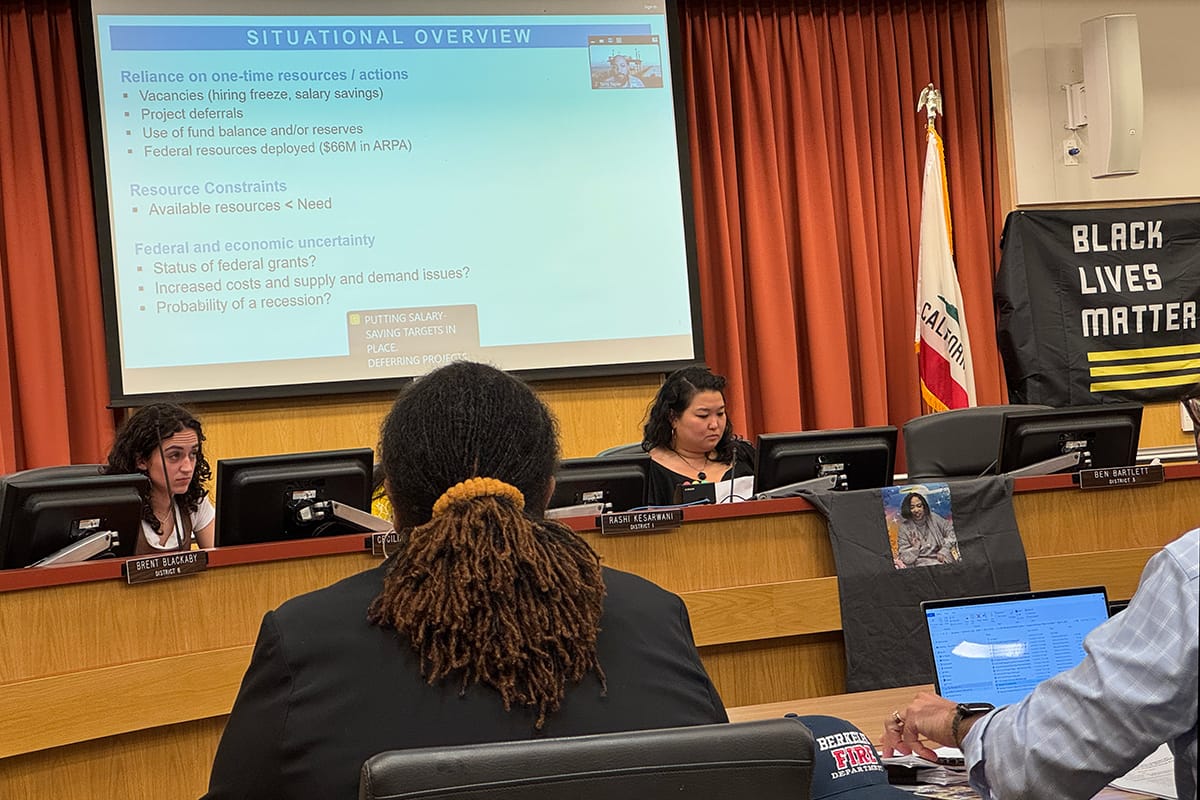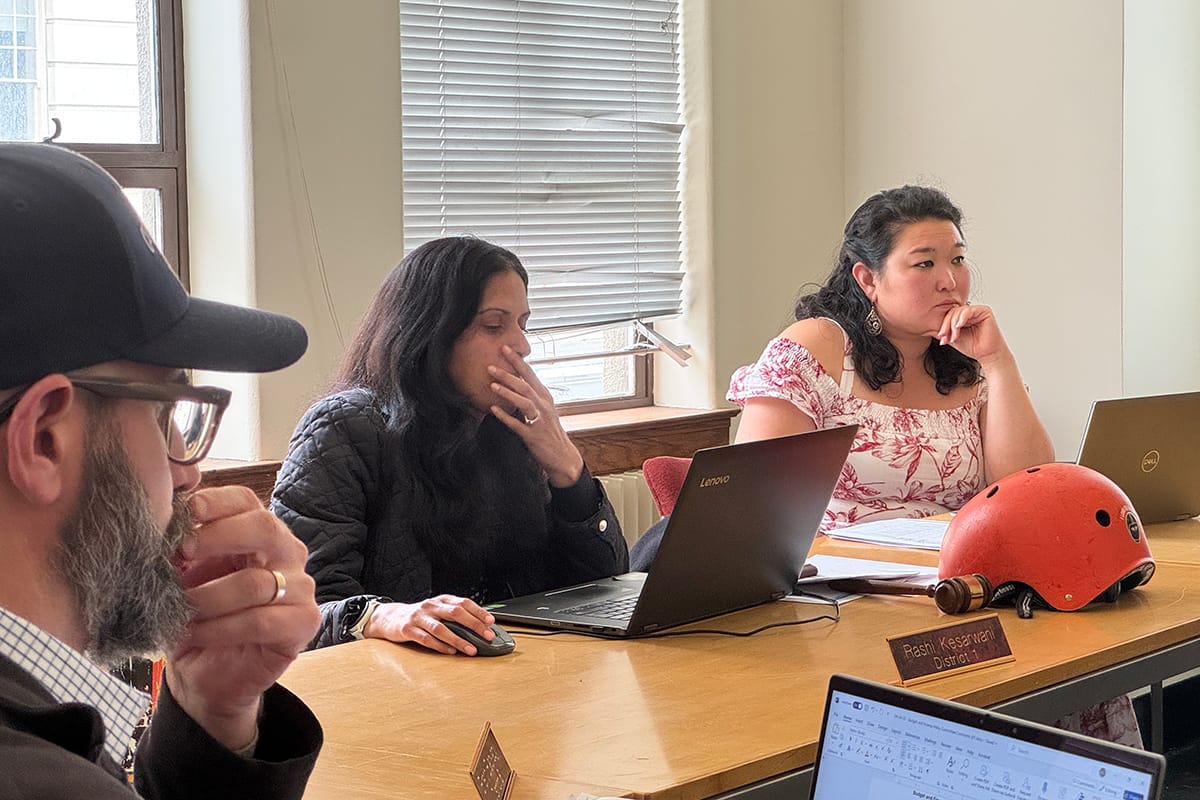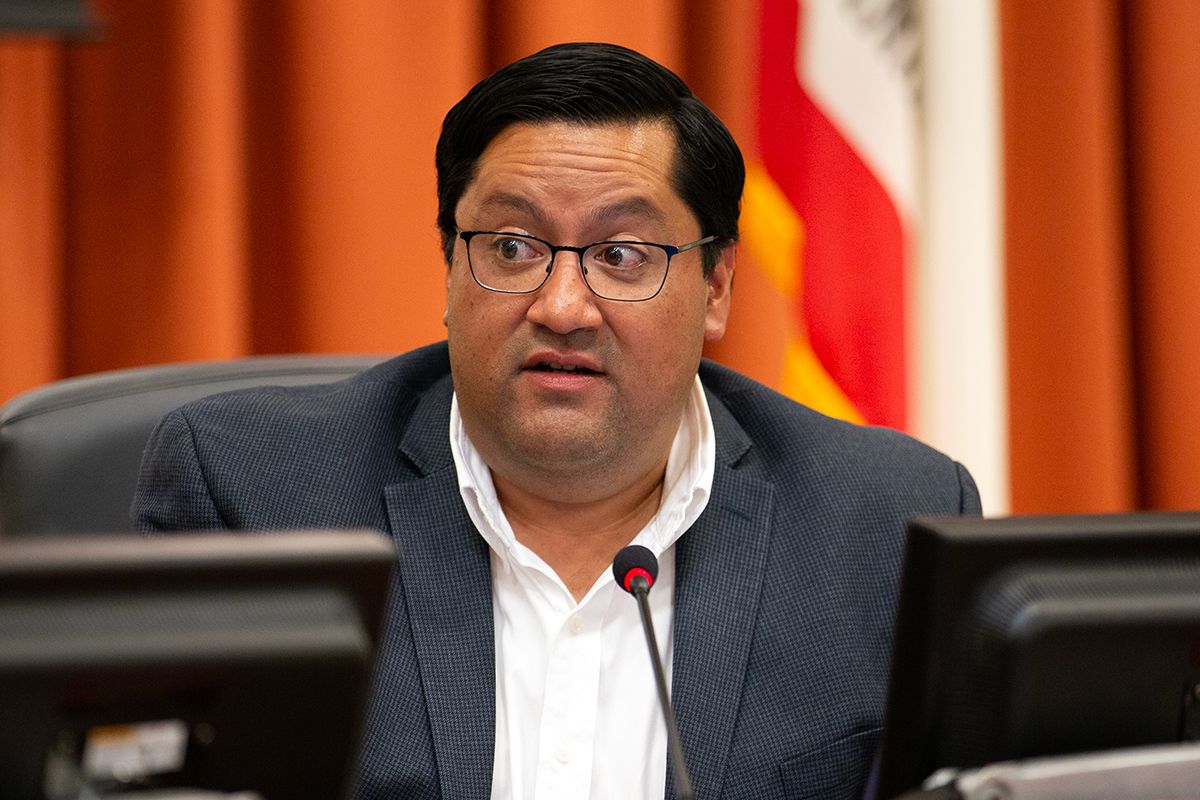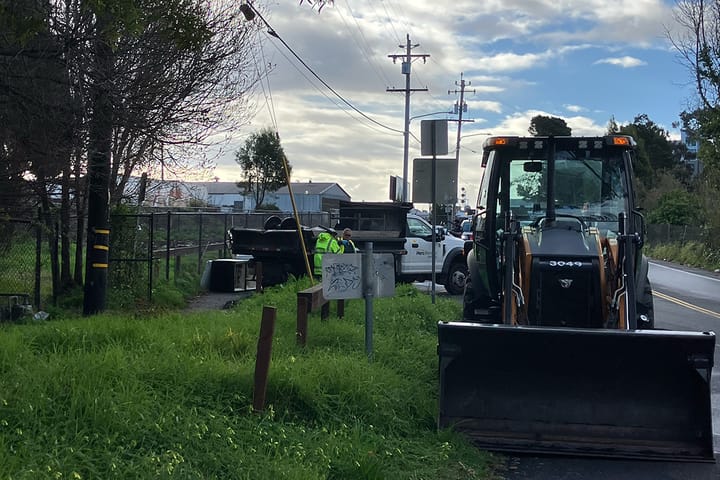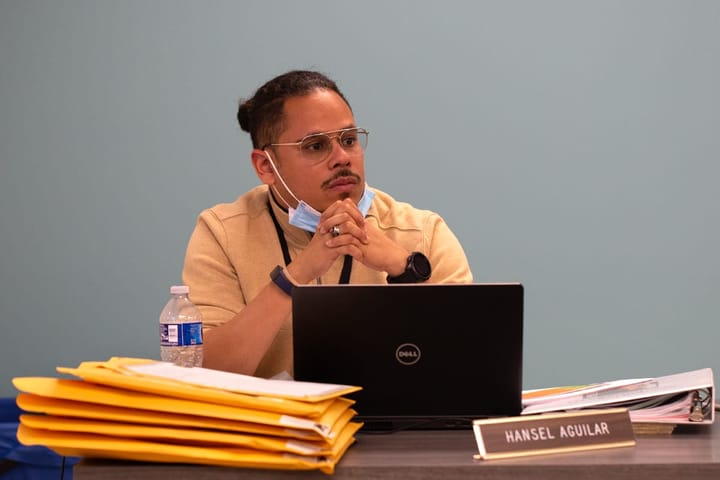Berkeley approves balanced budget in split vote
"We need to make some of the hard decisions now because it doesn't get any easier," Councilman Brent Blackaby said Tuesday night.
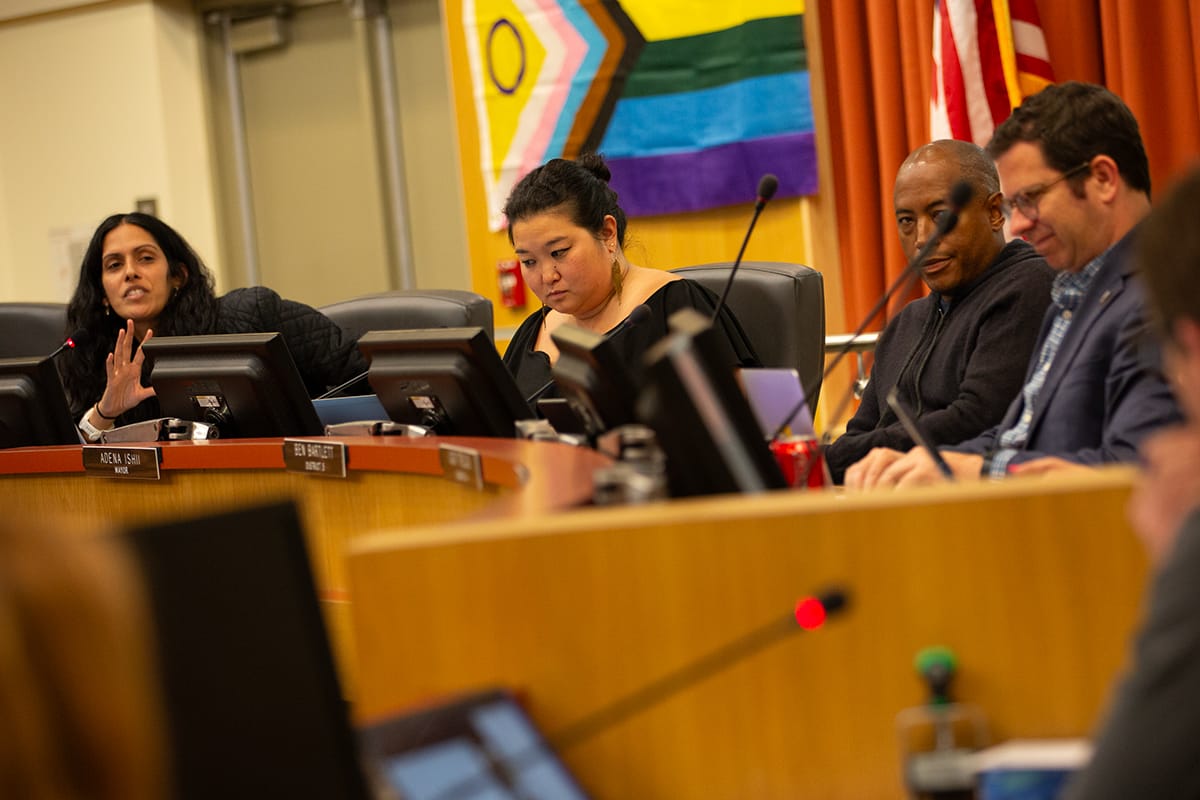
The Berkeley City Council approved a balanced budget early Wednesday morning — agreeing on most things, but ultimately failing to reach consensus.
In recent months, the city has been working to close a projected $29 million budget deficit through a hiring freeze and a series of mostly one-time strategies that allowed Berkeley to avoid "mass layoffs" in what officials called "a huge win."
Berkeley's overall budget is nearly $830 million, with general fund spending making up about $310 million of the total.
Coming into Tuesday night, city officials were in close alignment about the bulk of the budget, with just a few million dollars in allocations that kept them apart in the end.
Aside from that, council members expressed unanimous support for adding a staffer to the city's Homeless Response Team, giving the city's YouthWorks program some extra help and expanding after-school care offerings, in addition to most of the priorities put forward by Mayor Adena Ishii, which included several street safety improvements (such as red curb painting to support a new state daylighting law and a traffic study at Shattuck Avenue and Delaware Street).
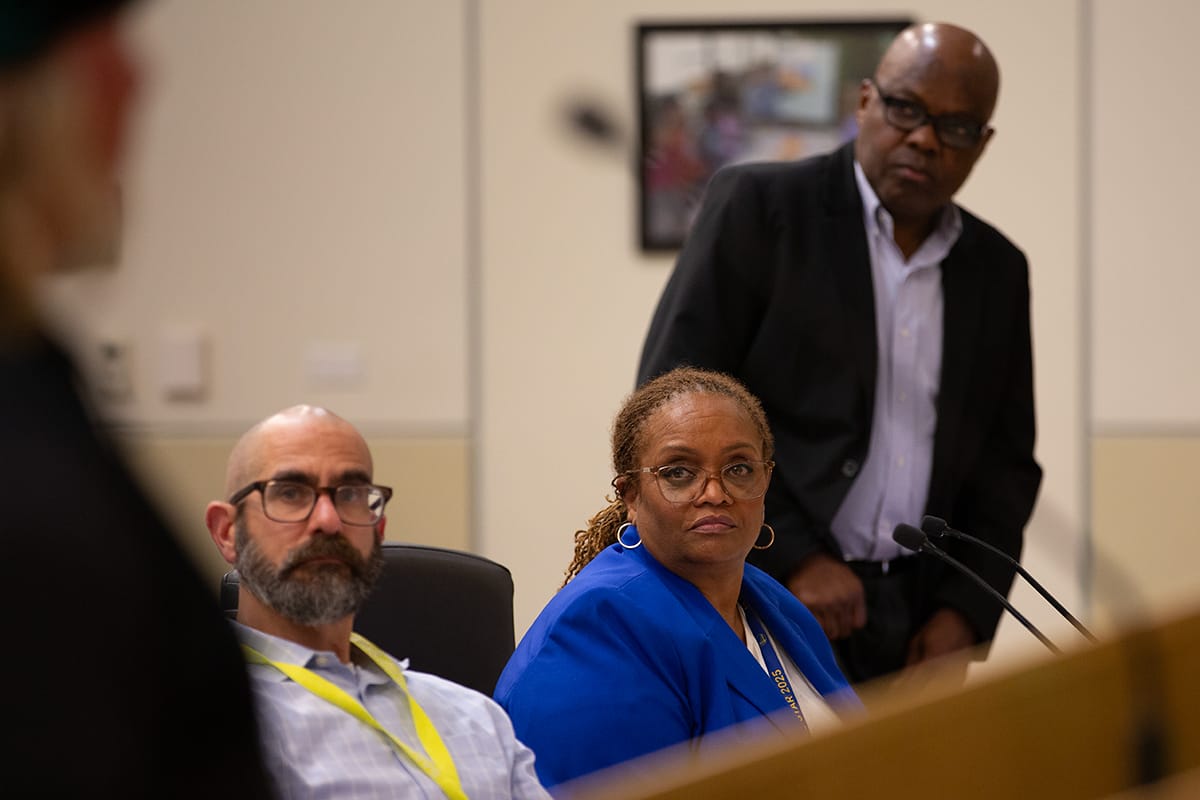
By the end of the night, officials had two nearly identical budget proposals on the table, with the only key difference being how to handle about $2.5 million related to affordable housing projects.
Mayor Adena Ishii's version of the budget proposed giving $3.9 million to the "small sites program" to buy and rehabilitate properties with the help of the Bay Area Community Land Trust (BACLT): a $1.4 million earmark for the program from last year that had gone unspent, along with another $2.5 million in new money, in line with a council pledge from last year for the upcoming fiscal year, 2025-26 (FY26).
Councilwoman Rashi Kesarwani agreed on letting small sites keep the unspent $1.4 million, but disagreed as far as the new $2.5 million.
Instead, her proposal allocated up to $1.1 million more for small sites in FY26.
(That's in addition to $1.1 million the organization already received and used in the fiscal year that's ending, according to available materials.)
The BACLT has been pleading with the city for months not to pull back the pledged funding, saying it will put projects that are already in the pipeline in peril.
Kesarwani and others have said the city's affordable housing money goes further and can help more people when it's used for other types of affordable housing projects, while small sites proponents say the program keeps people housed and prevents displacement in the first place.
Either way: City staffers have said they need that money — which comes from Measure U1 and is part of the general fund — to help balance the FY26 budget and shore up the Marina Fund.
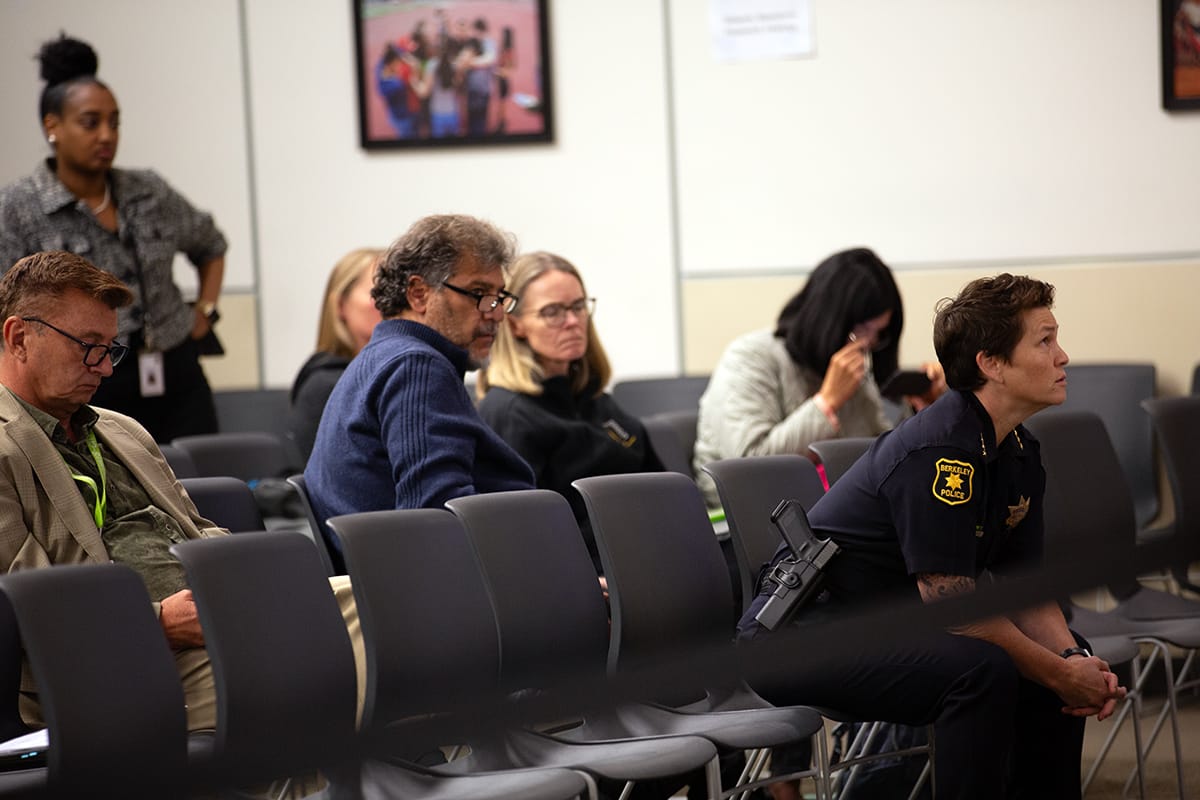
Initially, Kesarwani (and Councilman Mark Humbert) had put forward their "refinements" to the mayor's budget with an eye toward unanimous approval of the mayor's plan, hoping they could reach agreement in the form of a "friendly amendment" rather than a separate vote.
In the end, however, officials couldn't quite reach consensus despite agreeing on most things.
"I think we are 90% aligned, but that 10% is particularly important to me," said Councilman Igor Tregub, who represents downtown Berkeley.
Tregub said he backed the mayor's proposal because he campaigned for Measure U1 and promised voters it would be used to fight displacement — even though it's a general tax rather than a specific one.
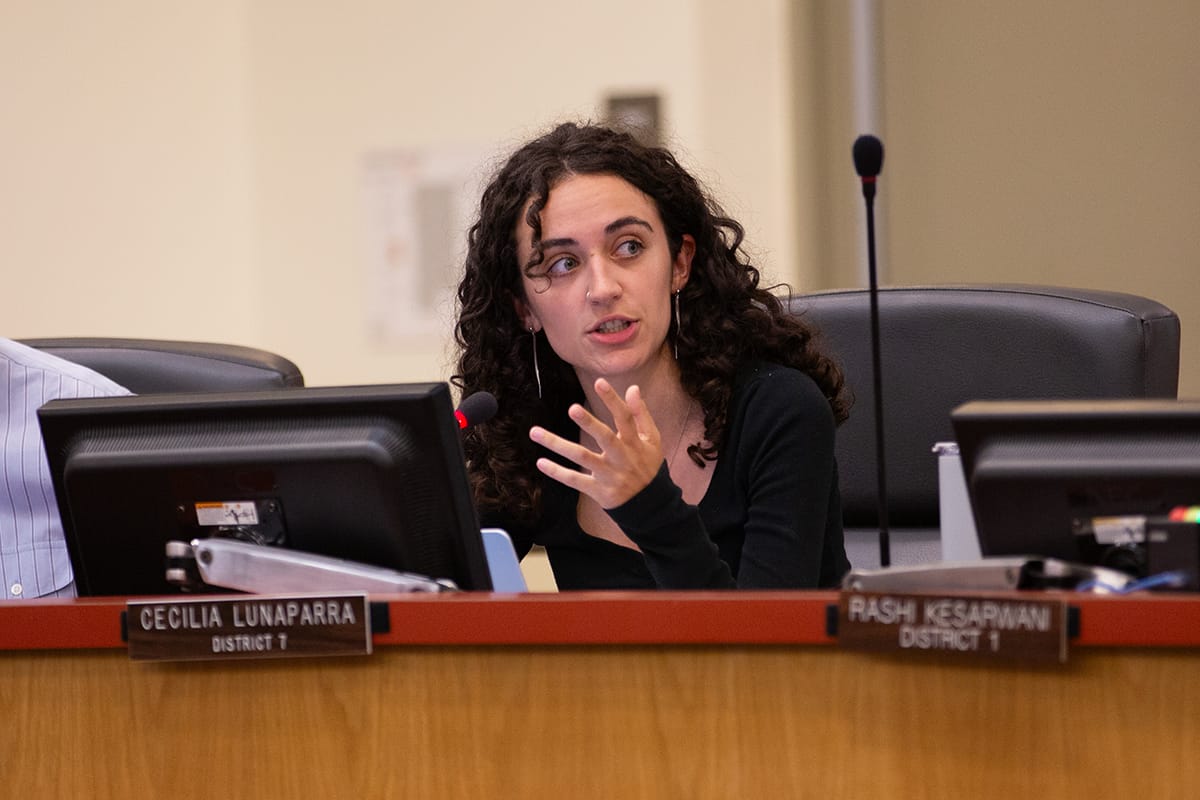
Councilwoman Cecilia Lunaparra, who represents the Southside district near UC Berkeley, took a similar stance.
"This cut will have a disproportionate and detrimental impact on the small sites program," she said.
" I recognize that we need to leverage U1 funding this year to patch up general fund holes, but I don't think that we can continue to do this," Lunaparra continued. "I don't think that that's fair."
Councilman Terry Taplin, who represents West Berkeley, said city officials need to do a better job handling the basics, including infrastructure and conditions at the Berkeley Marina.
Taplin said he would "fight tooth and nail" to make sure the Berkeley waterfront gets the support it needs, in addition to focusing on the city's overall structural deficit of around $20 million a year.
"For me, the Marina Fund deficit is of dire import," he said. "It is my top priority: Resolving the deficit, not just one time, but in the long term."
In the end, however, Taplin said he would be happy to support either budget proposal, calling them both commendable, and "the product of very careful and diligent work."
Councilman Mark Humbert (the Claremont-Elmwood council rep) said both budget proposals were strong.
He lauded his colleagues for working to bridge the gap in a collaborative way.
"I really appreciate how we've brought them together as close as reasonably possible," he said. "These are really difficult choices and we've gotten a long way through them."
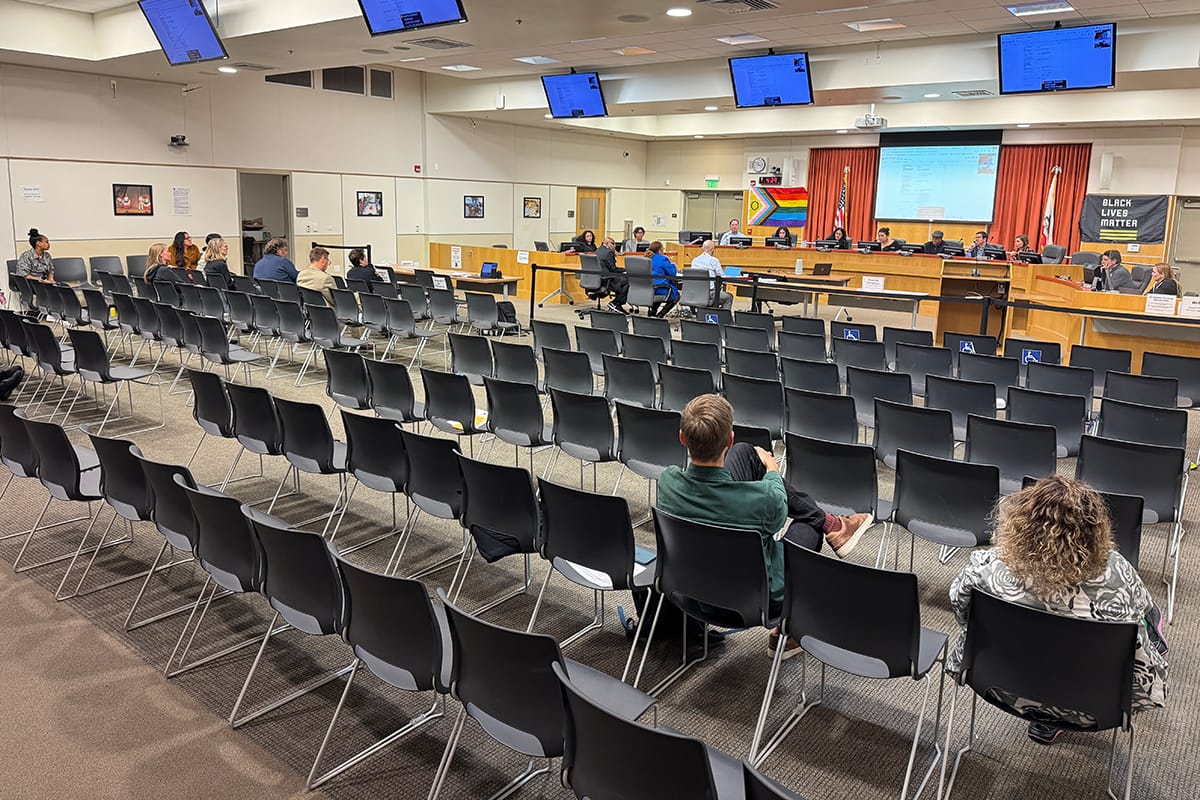
Officials started on the budget item shortly before 9 p.m. and repeatedly extended the meeting as their deliberations went on.
Hours later, they were still going, with muted but palpable tension growing, as they approached the vote and tried to find a path forward together.
At midnight, an abrupt automatic shut-down of the room's audiovisual system provided a few minutes of relief and release, and allowed everyone to stretch and take a breath.
Much of the night was spent comparing the two budget proposals, which became increasingly similar but still had some nuanced differences as the night wore on.
"This is the true sausage making," Kesarwani said close to 10 p.m.
Ultimately, Deputy City Manager David White saved the night by producing a different spreadsheet he had created, which made the differences clear.
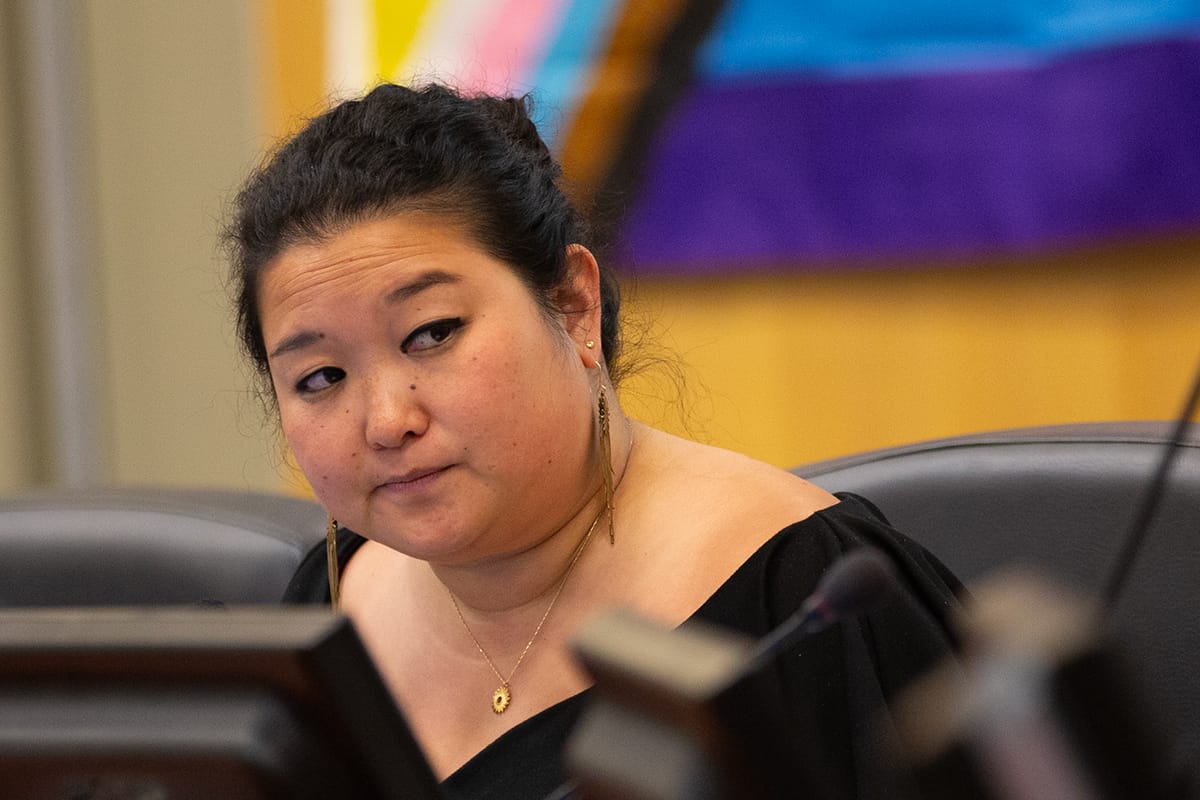
Originally, Mayor Ishii's budget included more money for the Office of the Director of Police Accountability, less for the Berkeley waterfront and a small allocation to help fight deportation.
At that point, four officials — Taplin, Humbert, Brent Blackaby and Shoshana O'Keefe — said they were supporting the Kesarwani version, giving it five expected votes.
The other three council members — Tregub, Lunaparra and Ben Bartlett — said they were backing the mayor's proposal, largely because of the small sites earmark, giving it four expected votes.
As they moved toward the actual vote, however, Ishii agreed to cut the police accountability investigator position (a job that has never been filled) and Kesarwani agreed to the deportation defense money, along with several other tweaks — leaving the small sites allocation as the only difference.
Before the vote, Ishii reiterated her strong support for the small sites program and said she was concerned about impacts on projects in the pipeline.
"There are units that could be saved that we will be foregoing by making this decision," she said, adding: "I think we've worked really hard to make a compromise here and … it's disappointing to me that this is where we're at."
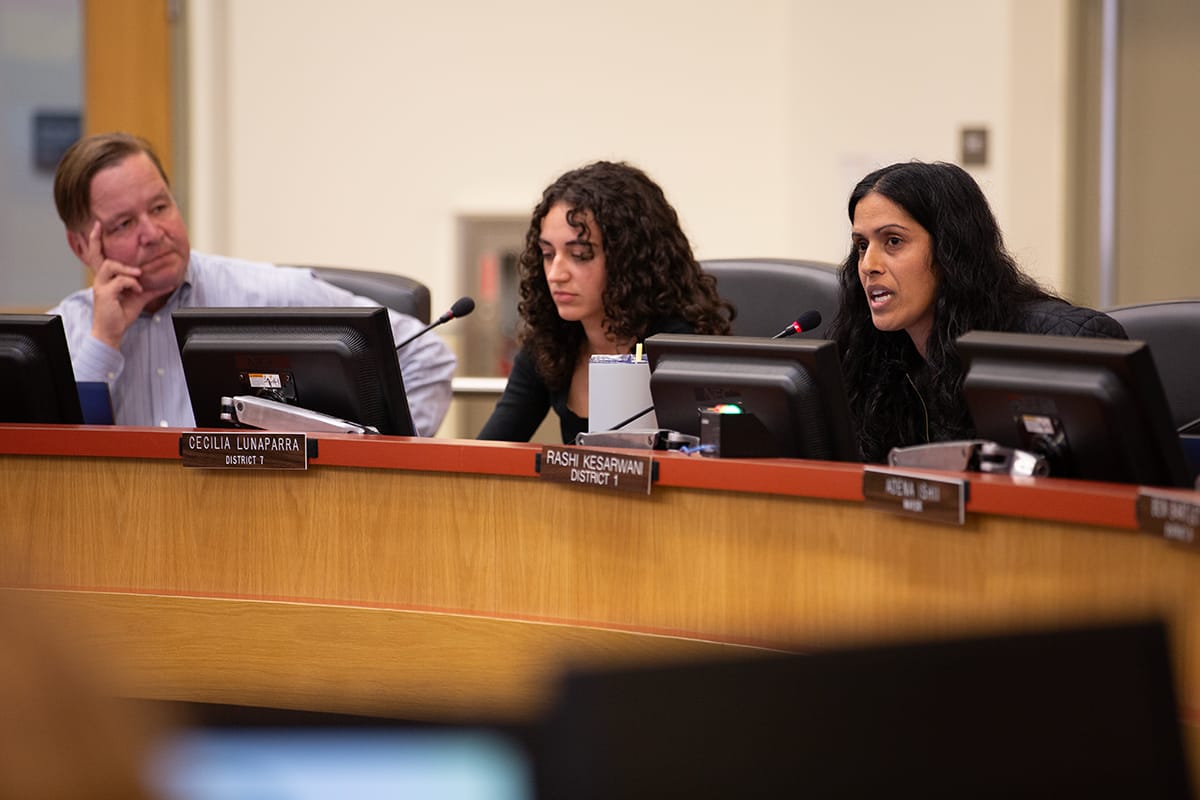
Under council rules, the Kesarwani proposal was up for a vote first.
And, in the end, her proposal prevailed — but in an unexpected way. (As a result, the mayor's motion never came to a vote.)
Ultimately, Kesarwani, Taplin, Blackaby and Humbert voted for the Kesarwani motion, as did Ben Bartlett, who represents South Berkeley.
Tregub abstained from the vote, while Ishii, Lunaparra and O'Keefe voted no.
In effect, O'Keefe's "no" vote indicated that the mayor's proposal could potentially have prevailed, had Bartlett not voted for the substitute motion.
(That's just one possibility, however, as O'Keefe may have made a different calculation if she was the deciding vote.)
After the meeting, O'Keefe, who represents North Berkeley, said she had appreciated the mayor's late-night adjustments — pulling back proposed spending on staffing and putting more money toward the marina.
"I was originally supporting Council Member Kesarwani’s amendment package because I found it to be more fiscally prudent," O'Keefe said. "But when Mayor Ishii agreed to incorporate those elements into her proposal, I was happy to vote for it. The added generosity towards small sites would have been a nice bonus and I’m sad we weren’t able to get that done."
On Tuesday night, officials said they would continue to pay close attention to city finances going forward.
"These are really hard choices," said Blackaby, who represents the Berkeley Hills. "It's gonna be a hard choice this year. It's gonna be a harder choice next year."
"We need to make some of the hard decisions now because it doesn't get any easier," he continued. "We can't keep cutting our way out of the problem, and that means growing the tax base."
Read more on the city website about the city of Berkeley budget.
Related coverage on the Berkeley city budget
